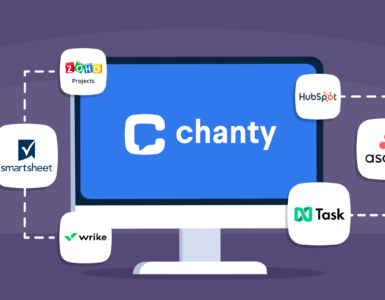After the pandemic, remote work became mainstream. In IT, hiring global developers has become necessary for those who want access to a better talent pool.
However, most of the benefits that remote work brings to the table are impossible without understanding how to enhance collaboration and dynamics between remote employees.
Having the right working tools helps teams organize better and more efficiently, allowing them to coordinate time zones, manage workload, keep track of projects, and more.
How to choose the best project management tools for remote teams
Selecting the right technical project management software for your remote team is a great way to maintain efficiency, collaboration, and smooth workflows. With so many choices available, it becomes really hard to choose the best fit for your particular team’s needs. Before we dive into the list of the best software, here’s a step-by-step guide to help you make an informed decision:
Step 1: Assessing Your Team’s Particular Needs
Before rushing into a specific tool’s features and pricing plans, give your team a good assessment. Ask yourself the following questions:
- Project Size and Complexity: Do you have big projects involving multiple stakeholders, or do you have small-focused projects? Depending on the projects’ complexity, that’s what defines how much functionality you need in the software.
- Team Collaboration: Is your team cocreative or activitatelly independent? If the members need heavy collaboration, they would search for tools that help communicate, assign tasks, and store documents in real time.
- Technical Requirements: Is your team involved in software development, in marketing, or maybe both? Depending on what your team is equipped with, you would probably desire a tool that plays nice to coding platforms, working with version control, or whatever other technical systems.
Step 2: Assess Key Features
Technical teams often require a variety of features that are customized to their workflow. Look for software that offers the following:
- Task Management: There should be a clear structure for task assignment and tracking. Features such as Kanban boards or Gantt charts will help in organizing the workflows.
- Integration with Development Tools: In technical teams, your project management software should be integrated with platforms like GitHub, Bitbucket, or Jira.
- Customization: Each team is different, with its processes. Pick software that can be tailored to your workflow and style of project management.
- Collaboration Features: Messaging, file sharing, and commenting can facilitate seamless communication across remote teams.
- Time Tracking & Reporting: Keep track of the progress and performance metrics for making sure the projects remain in scope and on course.
Step 3: Ease of Use
The problem with a tool that is very difficult to navigate is it wastes time and reduces productivity, no matter how packed with features it may be. Look for software with a user-friendly UI and easy to pick up. A platform featuring easy onboarding will make sure your remote team starts as soon as possible.
Step 4: Look at Pricing Options
Different project management tools have different pricing structures. Some charge per user, while others offer tiered plans based on features or the size of your team. Consider the following:
- Free Trials: Most tools have either a free trial or freemium version that you can try out before purchase.
- Cost Efficiency: The solution should be of value to the money, thus balancing out features against the constraints of your budget.
Step 5: Check for Integration with the Existing Toolset
It is worth looking for a project management tool that integrates really well with your team excisting platforms. Search for such tools that provide simple integrations with other third party services, thus saving your team time and protecting it from data silos.
Step 6: Test Before You Commit
Once you’ve trimmed down your options, see how well the software vibes with your team. Most have free trials, so it will be easy to evaluate the features, interface, and integrations before actually choosing. This hands-on way will help you highlight all the roadblocks and check whether the tool fits in with the workflow of your team.
By following this guide, you can select the best technical project management software for your remote team. It will help you boost productivity and enhance collaboration in a remote work environment.
Best working tools for a technical project manager
By 2028, it’s expected that 73% of all departments will have remote workers. Therefore, having the right tools is becoming more important as remote work continues to increase.
Having the right tools and resources will help you manage your team more effectively and build the necessary communication channels that help everyone stay on the same page. Additionally, tools are also key for building remote culture and bonding spaces.
These are the best tools for collaboration, project management, and communication for a remote technical project manager!
Categories of working tools for remote tech teams:
- Communication
- Project management
- Code management
- Time zone coordination
- Project wiki
Communication
1. Chanty
Chanty is an easy-to-use online collaboration tool perfect for synchronous communication of distributed teams. It lets teams communicate and connect by using unlimited group messaging and a built-in video conferencing technology.
Chanty is one of the best remote work tools for tech teams because it combines communication with project management, having an all-in-one solution.
Key features:
- High-quality video calls
- Create and assign tasks with Chanty
- Track workflow by using a Kanban board
- Chat with team members (Unlimited messages and no limited searchable history)
- Integrates with other apps such as Google Drive, Jira, GitHub, among others
Price: Free Plan (up to 5 users) and Business ($3/month per user)
2. Brosix
If you’re looking for a reliable communication tool for as a technical project manager, Brosix is the way to go. It consists of a secure instant messaging app targeted mainly for corporate uses.
Brosix will easily help you optimize your processes as you’ll be able to run your internal team networking, enhancing productivity and security. Teams can transfer files, use group or private chats, share screens, and more!
Key features:
- Transfer files
- Web control panel
- Private team network
- Real time communication (text chat, audio calls, video calls, chat rooms)
Pricing: Startup ($0), Business ($4/month per user), Premium ($6/month per user)
Project management
3. Jira
Jira is a must-have tool for a technical project manager who works under Agile’s methodology. The project management platform is powered by Atlassian, and its purpose is to help teams plan and track projects in a seamless way.
Tasks such as bug tracking and reporting are made clear by the platform’s transparent workflow. Every team member has visibility, therefore, it encourages teams to remain accountable. Additionally, Jira integrates with other powerful technical tools such as Bitbucket and Confluence.
Key features:
- Mobile access
- It has time tracking
- Includes a product roadmap
- Offers Scrum and Kanban boards
- It has an issue tracking software that tracks projects at any stage
Pricing: Freemium, Standard ($7.75/month/user), Premium ($15.25/month/user), and Enterprise (contact sales).
4. Asana
A great alternative to Jira is Asana. The project management system is simple and easy to use. For remote tech teams, Asana helps streamline technical communication and organize tasks and projects, dividing them into tasks and setting clear goals and deadlines for each team member.
Additionally, Asana integrates with other applications commonly used in remote teams, such as Slack and Google Drive, among others.
Key features:
- Custom fields
- Visualizes workload and projects
- Maps out a timeline to check the progress
- Organizes work with sticky notes and to-do lists
- Allows to create subtasks to break down big tasks
Pricing: Basic (Free), Premium ($10.99/month/user), Business ($24.99/month/user)
Code management
5. GitHub
GitHub is a code hosting platform used by tech teams to share, edit, and build in each other´s code. As it´s cloud-based, it allows teams to collaborate and work on projects regardless of each member´s location.
It´s a must-have working tool for tech teams needing a real-time platform to store, test, share, and collaborate.
With over 83 million developers using it, GitHub has become the number one tool for productivity and collaboration.
Key features:
- Secure code
- Collaborative coding
- Project management
- Administrate team permissions and access
- Automation: CI/CD, testing, planning, project management, issue labeling, approvals, onboarding, etc.
Pricing: Freemium, Team ($44/user/year), Enterprise ($231/user/year)
6. Bitbucket
Formerly known as Stash, Bitbucket is a tool suited for a technical project manager who works with Git. It is powered by Atlassian, and it consists of a code hosting and collaboration tool designed to help a technical project manager execute projects successfully.
Additionally, Bitbucket helps to structure Git repositories with an easy interface. And it offers a platform for code testing and deployment.
Key features:
- Cloud Security
- Integrates with Jira
- Code review system
- Automate deployments
- Collaboration across multiple teams
Pricing: Freemium, Standard ($3/month/user), Premium ($6/month/user)
Time zone coordination
7. Every Time Zone
One of the key challenges of working with remote teams is when team members are located in different time zones. Managing meetings can become a nightmare. Fortunately, working tools such as Every Time Zone exists to tackle these challenges.
Every Time Zone shows the time of the locations of every technical project manager. You can easily schedule meetings and keep track of due dates and tasks as you’ll know the availability of each team member, and you can schedule meetings at a time that works for everyone.
Key features:
- Share events
- Customize timelines
- Pick meeting times easily
- Shows all the time zones of your team
Pricing: Freemium, Pro ($39/year/3 users) or ($119/year/15 users)
8. World Time Buddy
World Time Buddy is a world clock that allows you to check different time zones and schedule online meetings. It’s a great tool for tech remote teams who want to sync on team members to figure out the best meeting schedules or availability.
Key features:
- Customizable
- Organize locations
- Compare timezones
- Schedule meetings (It integrates with Google Calendar)
Pricing: Free!
Project wiki
9. Confluence
A wiki is useful for remote teams as they can have relevant information and documents all in one place where users can easily add, edit, or remove content. And Confluence is one of the most powerful wiki solutions backed by Atlassian.
With Confluence, you can have your team’s information and key documents all in one place. This becomes important when working on specific projects that require a lot of documentation. You can create project plans, add your own notes in documents, edit, delete, and more.
Key features:
- Structured page tree
- Unlimited space and pages
- Share information across teams
- Have important documents in one place
- Integrates with Jira and other applications
Pricing: Freemium, Standard ($5.75/user/month), Premium ($11/user/month), Enterprise (Contact sales)
10. Gitbook
Gitbook is a tech-focused wiki project software specialized for technical project management teams. As its webpage shows, Gitbook is “where technical teams document.” The wiki focuses on making it easy for teams to research plants and document products.
With Gitbook, you can keep code guidelines, product overviews, and technical communication all in one place.
Key features:
- User-ready public docs
- Engage across remote teams
- Create a single source of information
Pricing: Personal (Free), Plus ($6.70/month/user), Pro ($12.50/month/user), Enterprise (Contact sales)
Wrapping up
Managing a remote team isn’t the same as managing an onsite team. You need the right technology, resources, and tools to keep collaboration consistent and easy. With communication tools like Chanty or code management tools like GitHub, your in house or outsourced technical team can organize in a way that location will never be a challenge.
The first step to choosing the right working tools is understanding your team’s dynamics and needs. Then it is all about getting started!








